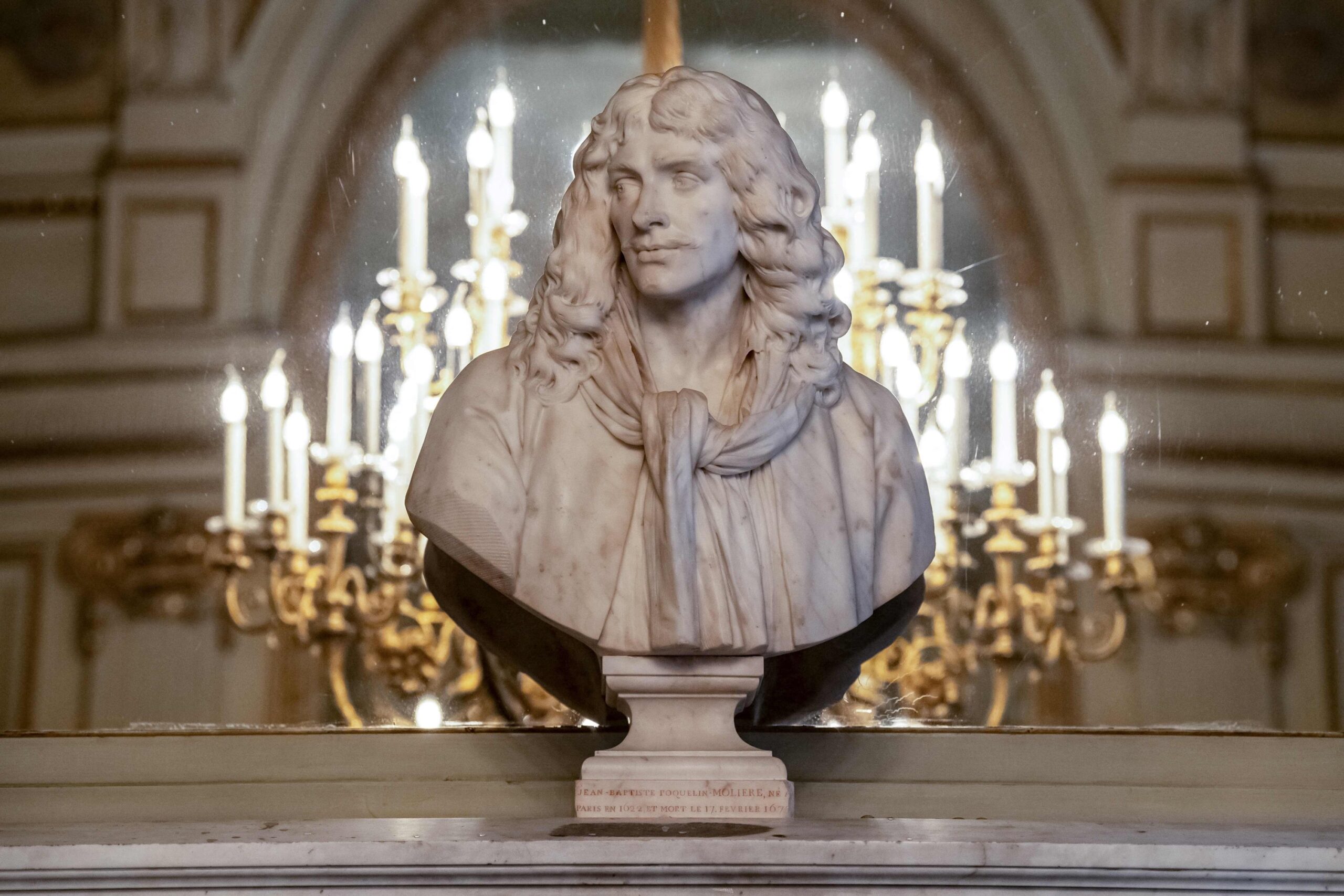French is often referred to as “La Langue de Molière” (The Language of Molière) in honor of the famous 17th-century playwright and poet, Jean-Baptiste Poquelin, better known as Molière. Molière is considered one of the greatest writers in the French language, renowned for his plays that critiqued society and human behavior with wit and humor.
Molière’s Influence on the French Language
Molière’s works, such as “Le Tartuffe”, “L’Avare”, and “Le Misanthrope”, had a profound influence on French literature and language. His sharp dialogues, vivid characters, and satirical approach not only entertained but also shaped the way the French expressed themselves. His mastery of the language, ability to capture the essence of human nature, and his use of comedy to convey deeper social messages contributed to the enrichment of the French vocabulary and idiomatic expressions.
A Cultural Icon
Just as Shakespeare is to English, Molière is to French—a symbol of linguistic excellence and literary tradition. Referring to French as “La Langue de Molière” celebrates the rich literary and cultural heritage associated with his works, recognizing the pivotal role his writings played in elevating the language.
The Enduring Legacy
Molière’s legacy continues to thrive in France, where his plays are still widely performed and studied, and his influence is felt in everyday speech. Calling French “La Langue de Molière” is a tribute to the lasting impact of his work and his role in shaping the French language into a medium of both high culture and everyday conversation. In conclusion, French earned its nickname as “La Langue de Molière” thanks to the indelible mark this literary giant left on the language, making it synonymous with elegance, wit, and cultural richness.


